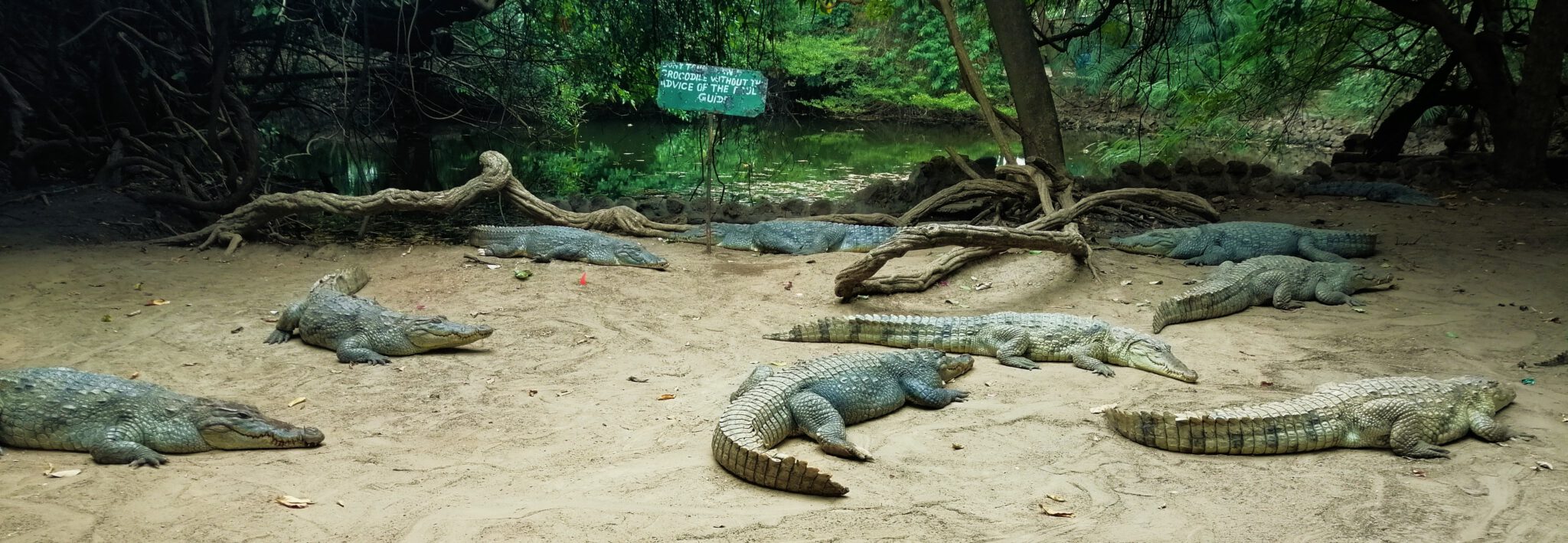
Country
“Gambia? Never heard of it. Where is it?”
We were often asked these questions. But no wonder, because Gambia is the smallest country in Africa with about 2.4 million inhabitants, about 50km wide and 480km long, a total area of about 11,000km², surrounded by Senegal. The country with the capital Banjul is located on the west coast of Africa directly on the Atlantic. The Gambia is known for its namesake river, which stretches through the middle of the country.
As small as Gambia is, the country really represents the beauty of nature. The paradise with tropical rainforest regions and 80km long sandy beaches offers over 500 different plant species. Palm forests stretch across the country and exotic fruits that we only know from the supermarket can be picked on every corner. The animal world is also very impressive, even though large game such as elephants, lions or giraffes were exterminated by colonial rulers and poachers in the 19th and early 20th centuries. Nevertheless, Gambia, with its extensive savannah and wetlands, still offers a great variety of colorful bird life, various species of monkeys – well-known the green morecat – and last but not least: crocodiles. The Gambia was once considered the country with the most crocodile river in Africa, but today crocodiles are rarely found in the wild.
Languages
After independence from the United Kingdom in 1965, English remained the official language.
Nevertheless, many different ethnic groups live in Gambia, which define themselves through their own language. There are around 20 different languages in The Gambia, but nine of these languages are the main ones. The most widespread languages are Mandinka, Fulbe and Wolof. But the majority of the population converses in English, otherwise the people would not understand each other.
We have also had the experience of meeting many Gambians who speak German – be it somewhere on the street or in the bar next door. This is because many Gambians fled to Germany in the 1990s because of the dictatorship at the time. So they built a life in Germany, learned the German culture and language. Today’s President Adama Barrow also once sought asylum in Germany. However, his application for asylum was rejected and he was deported back to Gambia. With democracy starting in 2017, many Gambians living in Germany went back to their country. However, they still speak German today and show a close connection to Germany.
Religion and lifestyle
The Gambian population is 90% Muslim, 9% Christian and about 1% belongs to traditional indigenous African religions. Many tourists shy away from it because the majority belong to the Muslim faith, which unfortunately is often equated with Islamic reigns of terror in other countries. But not in The Gambia.
The Gambia is considered one of the most peaceful countries in Africa. As is well known, the Koran also writes (colloquially): one should accept and respect every nationality, every religion, every skin color and origin. Of course, most of the Gambian population follows Islamic traditions such as weekly mosque visits, no pork eating, etc. However, there are Muslims just like in Germany Christians who don’t care about religious ways of life and are just human. Muslim women in The Gambia also wear short clothes, go out in the evenings, drink alcohol and enjoy life. In The Gambia, there is also an increasing “Bob Marley lifestyle”, so things are very relaxed.
In addition, the Gambians experience a lot of respect, appreciation, recognition, friendliness and a great willingness to help. In other words, if you have a car breakdown, for example, people will come up to you out of nowhere and help you without asking for anything in return. Where else can you experience that nowadays?
Infrastructure and economy
In general, as is well known, Africa does not have such a developed infrastructure as Europe or other continents. By West African standards, however, the Gambia’s infrastructure is relatively well developed. Regulated public transport such as buses and trains are not represented, but there is an airport in Banjul and countless minibus taxis or so-called bush taxis. The road network covers about 4000km, but only about 700km of it is paved, mostly the main roads between the larger cities. All other paths are mostly unpaved sand paths, which sometimes turn into impassable rivers during the rainy season.
Economically Gambia is a rather uninteresting country. It offers no mineral resources and is therefore dependent on agriculture, fishing and tourism. In addition, there is no significant industrial manufacturing in The Gambia, except for the fishmeal factories along the coasts. The largest branch of industry is the local processing of peanuts. The larger private companies are involved in road and house construction. In Gambia there is at least the state-owned brewery “Banjul Breweries”. Otherwise, many small businesses are represented such as bakeries, small carpenters, metal processing, mechanic workshops and grocery stores.